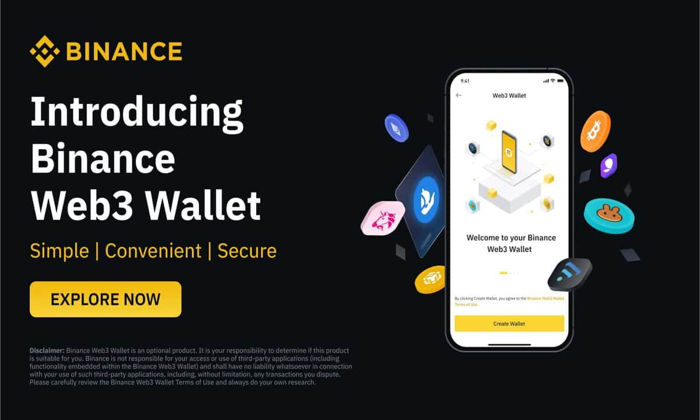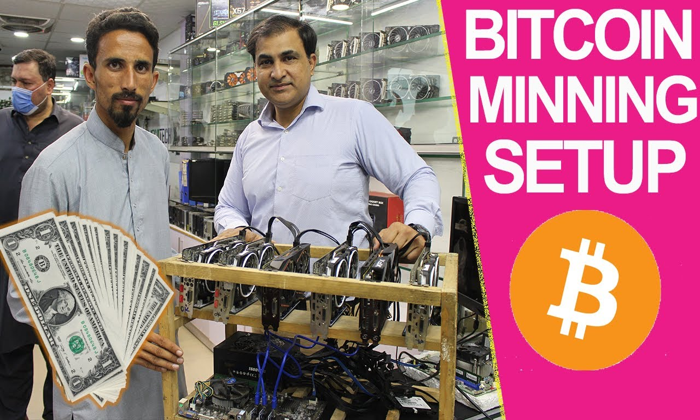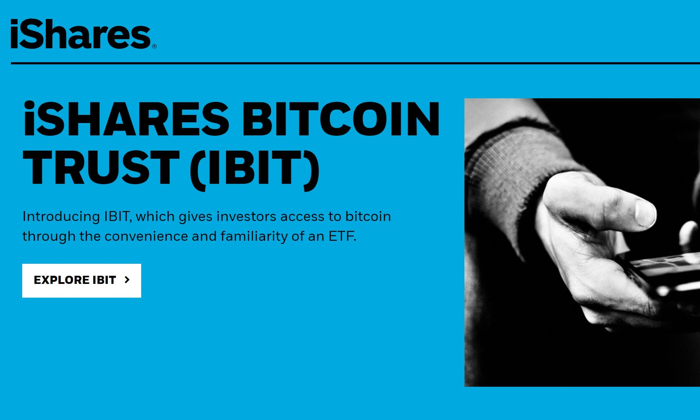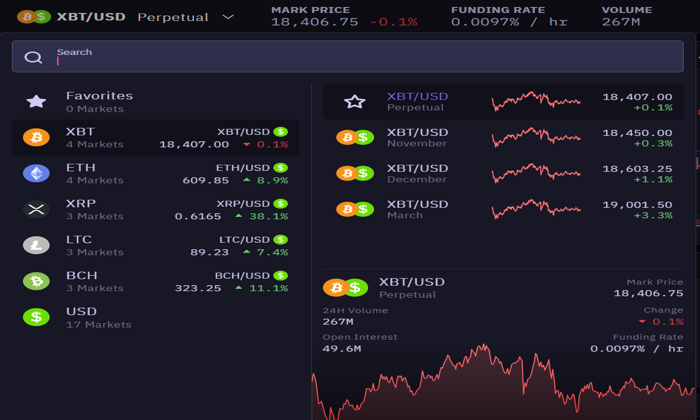The Web3 Wallet Experience is rapidly evolving, shaped by advancements such as Smart EOAs enabled by EIP-7702, poised to transform how users interact with digital assets. In a landscape where crypto user experience is paramount, platforms like Trust Wallet are leading the charge, providing seamless and user-friendly interfaces that cater to the growing demand for self-custody solutions. Users today are not just looking for safe storage but also for intuitive transactions that eliminate the frictions often associated with gas fees. With features like FlexGas facilitating gas payments using existing tokens, the Web3 ecosystem is becoming more accessible and efficient. This shift signals a promising future where managing cryptocurrency feels as straightforward as any everyday financial interaction.
The realm of decentralized finance is witnessing an overhaul in the digital wallet landscape, often referred to as the Web3 Wallet Experience. As technology progresses, the shift toward intelligent wallets powered by Smart EOAs is a game-changer, fostering simpler interactions for cryptocurrency holders. With the introduction of standards like EIP-7702, wallets can now adopt smart contract functionalities, enhancing user freedom without compromising security. Trust Wallet exemplifies this evolution by addressing the common hurdles of gas fees, ensuring that users can perform transactions with minimal hassle. This transformation not only aligns with the expectations of modern crypto users but also underscores the need for a more intuitive and supportive digital finance framework.
The Evolution of User Experience in Web3
As the landscape of cryptocurrency continues to evolve, the expectations and experiences of users have transformed significantly. Today’s cryptocurrency enthusiasts are not just looking for security; they are demanding simplicity, efficiency, and seamless interactions. This shift has influenced the design of digital wallets, prompting innovations that cater specifically to enhancing the user experience. With the adoption of Smart EOAs and the implications of EIP-7702, wallet interfaces are becoming responsive to user needs, paving the way for a more intuitive usage.
An emphasis on user experience is vital for fostering widespread adoption of cryptocurrency. Wallet technologies like Trust Wallet are responding to these changes by integrating features that simplify user interaction. The introduction of functionalities that allow users to handle gas fees in a more manageable way exemplifies this commitment. Popularizing concepts such as FlexGas enables users to interact with decentralized applications (DApps) without the burden of cumbersome transaction processes.
Understanding Smart EOAs and EIP-7702
Smart EOAs represent a groundbreaking move in the world of Ethereum transactions. With the implementation of EIP-7702, externally owned accounts can now harness the capabilities of smart contracts without needing to undergo complex structural changes. This transformative functionality means users can initiate multifaceted transactions simply and concisely, greatly enhancing the overall crypto user experience. By minimizing steps in transaction executions, Smart EOAs allow users to focus on their goals rather than getting tangled in technical difficulties.
The integration of EIP-7702 offers tremendous benefits, especially for new and existing crypto users. It allows actions such as establishing recurring payments and token-based gas payments to be conducted with a few simple taps. Not only does this reduce transaction friction, but it also mitigates the cognitive burden associated with gas fees. Consequently, users can enjoy a more fluid interaction with the blockchain, thereby making the entire process of managing digital assets more sustainable and user-friendly.
Reimagining Gas Fees in Cryptocurrency Transactions
Gas fees are a critical aspect of cryptocurrency that often deter users due to their unpredictability and complexity. Traditional models required users to hold native tokens to manage these fees, leading to barriers in effective transaction processing. However, with innovations like FlexGas introduced alongside EIP-7702, users can now utilize tokens they already possess to pay for gas fees. This pivotal change not only lowers the entry point for many users but also liberates them from the confusion associated with managing multiple token balances.
By redefining how gas fees function, Trust Wallet provides an opportunity for enhanced liquidity and user satisfaction. The flexibility in payment options empowers users to engage in transactions without worrying about maintaining separate funds for fees. As the cryptocurrency market broadens, understanding the evolution of gas fees will be essential for users as they navigate decentralized environments. It represents a critical shift towards a more inclusive financial ecosystem.
Trust Wallet: Pioneering Seamless Web3 Experience
Trust Wallet has made significant strides in establishing itself as a user-centric wallet in the burgeoning Web3 environment. By focusing on consumer demands and utilizing cutting-edge technology like EIP-7702, Trust Wallet shapes a unique user journey marked by simplicity and security. Its emphasis on account abstraction and Smart EOAs makes the process of navigating complex transactions both accessible and intuitive. As more users lean towards self-custody options, Trust Wallet stands equipped to meet these expectations.
The integration of services such as FlexGas showcases Trust Wallet’s commitment to improving the crypto user experience. Allowing transactions with established tokens reinforces Trust Wallet’s mission to put control back into the hands of users while removing barriers associated with traditional wallets. This move not only positions Trust Wallet as a leader in the space but also inspires other wallet providers to innovate, leading to a more robust and user-friendly Web3 experience.
The Adoption of Flexible Wallet Models
The emergence of flexible wallet models represents a shift in how users interface with blockchain technology. By incorporating elements like Smart EOAs through EIP-7702, wallets can now provide functionalities that adapt to user needs without overwhelming them. The capability to execute complex transactions and provide dynamic interactions resonates well with both novice and experienced crypto users. These wallet models are not just tools; they are evolving into adaptive systems designed to facilitate user engagement.
Flexibility in wallet technologies means that users no longer have to navigate through layers of complexity to accomplish their crypto tasks. By utilizing intelligent transaction logic and customizable features, users can enjoy a more streamlined experience. As these models become the norm, the emphasis on making cryptocurrency interactions effortless will undoubtedly drive broader adoption across various demographics, ultimately reshaping the landscape of digital finance.
Transforming Wallet Interactions with Smart Technology
The concept of intelligent wallet interactions emerges from the desire to create seamless user experiences in a decentralized world. With the advancements brought forth by EIP-7702, wallets like Trust Wallet can initiate smart functionalities that automate user actions, thus simplifying the entire process of managing digital assets. This transformation is significant as it introduces users to features that intuitively guide them through transactions, making Web3 not just accessible but friendly.
By allowing wallets to perform as smart agents, we create an environment where users can engage with the blockchain without needing extensive technical knowledge. For instance, features like automated transaction suggestions or managed gas payments contribute to an overall enhanced user experience. These smart interactions ensure that users spend less time worrying about the mechanics of decentralized applications and more time enjoying the benefits of their use.
The Future of Wallet Technology in Web3
With advancements like EIP-7702 and Smart EOAs paving the way for an improved crypto user experience, the future of wallet technology looks promising. As projects and technologies continue to evolve, we can expect wallets to incorporate even more intelligent features designed to meet the demands of users navigating complex decentralized environments. These developments will not only hover around security but also around making Web3 a more human-centric ecosystem.
The integration of user feedback into wallet design allows developers to enhance their products continually. By focusing on minimizing friction and improving usability, the wallets of tomorrow will need to harmonize smart technology with a user-friendly interface. As the marketplace grows more expansive, wallet technologies that prioritize user experience will be instrumental in driving the broader adoption of cryptocurrency, ultimately solidifying their foundational role in the financial landscape.
Challenges in User Engagement and Wallet Functionality
Despite the advancements in wallet technologies, challenges still exist in fully engaging users in the Web3 landscape. Issues such as high gas fees, complicated UX, and security concerns remain prevalent, often overshadowing the benefits of decentralized finance (DeFi). Users require wallets that not only safeguard their assets but also facilitate stress-free interactions. Hence, the obligation falls on wallet providers like Trust Wallet to address these challenges effectively.
To overcome these barriers, innovative solutions must align with the evolving expectations of crypto users. By implementing features inspired by Smart EOAs and ensuring transparency in gas fee management, wallets can enhance user confidence. Robust educational resources and intuitive interfaces will play a crucial role in demystifying technology for users who may be new to the cryptocurrency space. Addressing these challenges will be essential for expanding the reach of Web3 and its adoption across diverse user groups.
Integrating User Feedback into Wallet Design
In the world of cryptocurrency, understanding user needs and preferences is paramount. Wallet providers must prioritize user feedback to create efficient and user-friendly designs. With Smart EOAs emerging as a revolutionary model within EIP-7702, developers must focus on refining their offerings based on real-world user experiences. Listening to the community not only fosters trust but also drives innovation in wallet functionalities.
The surge in self-custody solutions has underscored the importance of developing responsive wallets that can adapt to changing user expectations. Features such as automated gas fee payments and simpler transaction workflows emerge directly from user feedback. By incorporating these insights into wallet design processes, teams can move towards creating products that are truly representative of the needs and desires of their users, paving the way for enhanced adoption and engagement in the Web3 landscape.
Frequently Asked Questions
What is the importance of Smart EOAs in enhancing the Web3 Wallet Experience?
Smart EOAs (Externally Owned Accounts) significantly enhance the Web3 Wallet Experience by allowing users to treat their wallets like smart contracts, improving functionality without compromising user control. With features from EIP-7702, Smart EOAs simplify transactions, reduce cognitive load regarding gas fees, and enable better interactions with decentralized applications (DApps), making the wallet experience more intuitive for crypto users.
How does EIP-7702 impact gas fees in the Web3 Wallet Experience?
EIP-7702 transforms the Web3 Wallet Experience by introducing FlexGas, which enables users to pay gas fees using tokens they already possess, such as USDT or BNB. This change alleviates the burden of managing gas balances and enhances transaction ease, making user interactions with wallets smoother and less daunting.
What features does Trust Wallet offer to improve the Crypto User Experience with Smart EOAs?
Trust Wallet enhances the Crypto User Experience by supporting Smart EOAs through EIP-7702, offering features like FlexGas for flexible gas payments and bundled approvals with a single transaction. These innovations streamline user interactions with digital assets, making the wallet feel more accommodating and less complex for everyday users.
Why are gas fees considered a burden in the Web3 Wallet Experience?
Gas fees are seen as a burden because they create a cognitive load for users, complicating the transaction process. Users often face confusion managing multiple chains and gas balances, leading to abandoned transactions. EIP-7702 aims to minimize this issue by allowing smoother gas fee payments through tokens, enhancing the overall Web3 Wallet Experience.
What are the future implications of EIP-7702 for the Web3 Wallet Experience?
The future implications of EIP-7702 for the Web3 Wallet Experience are profound, as it could enable wallets to function as intelligent agents that automate complex transactions and enhance user onboarding. With features like gasless transactions and automated payment strategies, the wallet experience will evolve, making cryptocurrency interactions simpler and more user-friendly.
How does Trust Wallet ensure user security while enhancing the Web3 Wallet Experience?
Trust Wallet prioritizes user security while enhancing the Web3 Wallet Experience by implementing Smart EOAs with EIP-7702, which maintains users’ control over their private keys and seed phrases. Features like FlexGas also do not require a shift to contract-based wallets, ensuring users retain complete authority over their assets.
What role do modular systems play in improving the Web3 Wallet Experience at Trust Wallet?
Modular systems at Trust Wallet play a critical role in improving the Web3 Wallet Experience by enabling the seamless execution of transactions through custom gas management and dynamic routing. Components like the Paymaster and Bundler optimize user interactions, ensuring that the wallet can handle complex requests quickly and securely, ultimately making the crypto user experience more efficient.
How does the integration of FlexGas redefine the gas payment process in the Web3 Wallet Experience?
The integration of FlexGas redefines the gas payment process in the Web3 Wallet Experience by allowing users to pay gas fees using tokens they already own, eliminating the need for native currency beforehand. This innovation simplifies the transaction process, reduces user friction, and contributes to a more streamlined and friendly wallet environment.
| Key Point | Explanation |
|---|---|
| User Experience Evolution | Users expect a more straightforward and seamless experience, pushing for self-custody and control. |
| EIP-7702 Proposal | Allows EOAs to function like smart contracts, enhancing user experience without changing account types. |
| FlexGas Feature | Enables payments of gas fees using held tokens, simplifying transactions. |
| Market Growth | The non-custodial wallet market is projected to grow from $1.5 billion in 2023 to $3.5 billion by 2031. |
| Counteracting Gas Fee Burden | Gas fees add cognitive load; users want transactions to complete without the need for manual approvals. |
| Modular Infrastructure at Trust Wallet | Trust Wallet has built a scalable backend infrastructure to support EIP-7702 and FlexGas. |
| Future of Web3 Wallets | EIP-7702 could transform wallets into intelligent agents that automate complex processes. |
Summary
The Web3 Wallet Experience is undergoing a transformation, with innovations like EIP-7702 paving the way for more intuitive and user-friendly interactions in cryptocurrency. As user expectations evolve, wallets are becoming not only tools for storage but also intelligent agents that anticipate and meet the needs of their users. The shift towards self-custodial solutions, alongside features such as FlexGas, highlights the importance of simplicity and efficiency in today’s decentralized landscape, ensuring that users can engage with their digital assets without unnecessary complexity. Ultimately, a seamless Web3 Wallet Experience will be crucial for driving wider adoption and trust in blockchain technologies.
The Web3 Wallet Experience is on the verge of a transformative shift, driven by innovations like Smart EOAs, enabled through EIP-7702. As the cryptocurrency landscape evolves, users are increasingly seeking interfaces that not only prioritize security but also simplicity and convenience. This growing demand is epitomized by tools such as Trust Wallet, which stands out as a leading self-custodial wallet that caters to modern expectations. By integrating advanced features like FlexGas, users can now manage gas fees using their preferred tokens, revolutionizing the way they engage with digital assets. This evolution highlights a crucial turning point where the complexity of transactions is minimized, making cryptocurrency accessible and enjoyable for everyone.
The User-Centric Wallet Interface is redefining how individuals interact with decentralized technologies in the evolving landscape of cryptocurrency. With advancements like Smart Externally Owned Accounts (EOAs) made possible by Ethereum’s EIP-7702, cryptocurrency enthusiasts can enjoy a streamlined approach that alleviates the burdens typically associated with gas fees and digital asset management. Platforms such as Trust Wallet are at the forefront of this revolution, enhancing user experiences by providing innovative features that prioritize efficiency and usability. The integration of token-based gas payments showcases a significant leap towards a more intuitive and less burdensome investment environment. Ultimately, this shift aims to humanize the crypto experience, allowing for seamless transactions and greater user satisfaction.















